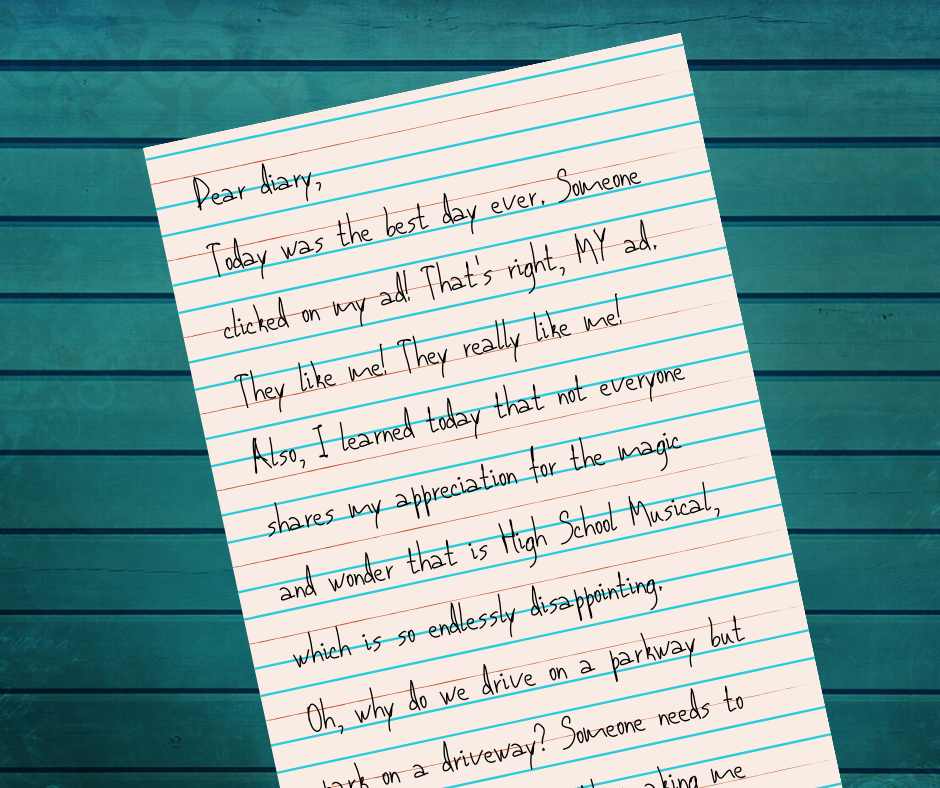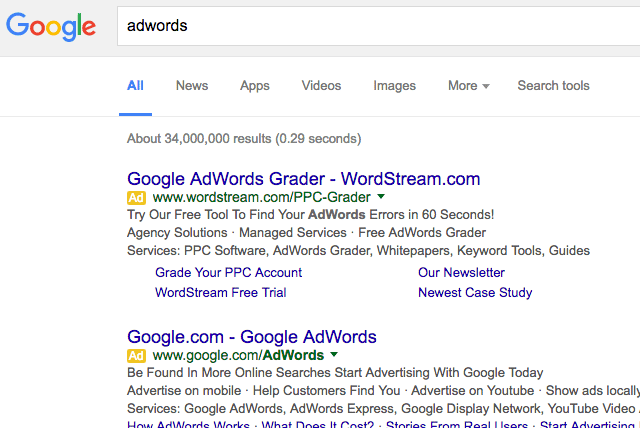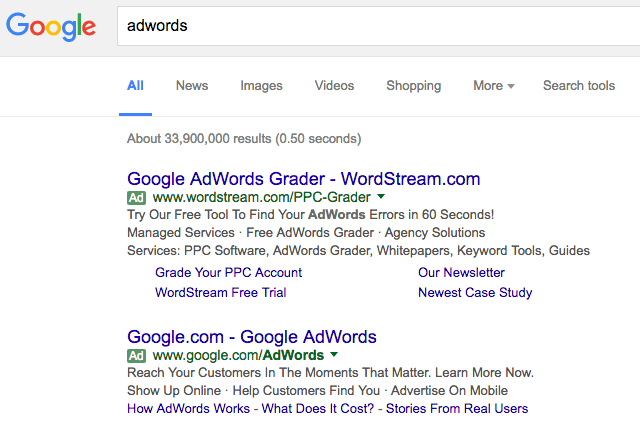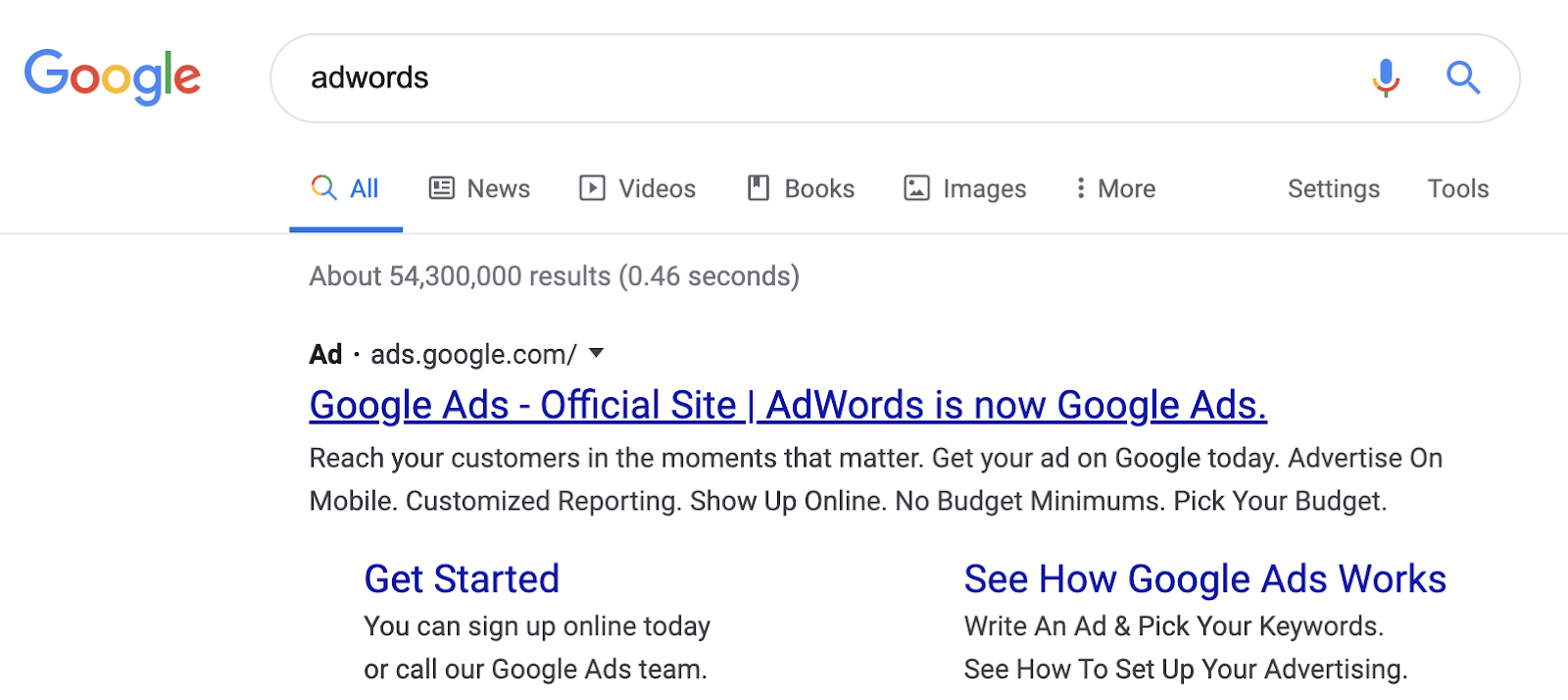Google Ads review
Google Ads are a great way for businesses to promote their products, services, and content in a way that's always relevant and served up to the right people. Not only that, you only pay when someone actually clicks on your ad. That said, buyers still trust organic results over ads, many of the best keywords are very expensive and competitive, and it can be quite difficult to master the platform.
What do you do when get inspired to try something new in the kitchen?
Well, if you're like me, you whip out your phone and look up a recipe. Unfortunately, this is where things usually go horribly wrong, because it's never that simple.
Nine times out of 10, clicking on a recipe search result will rarely give you the actual recipe right up front. Instead, you're stuck reading (see: "panic-scrolling") through someone's exhausting life story about how, when she was a little girl, and it was raining outside, her grandmother would always make her this particular meatball dish to make her feel better. You see, it was a recipe passed down through the generations via storytelling and interpretive dance, because ("lol") her family didn't believe in writing anything down.
Oh, the whimsical nostalgia she always feels when making this dish is soul-warming... she just has so many feelings to share that are meant tug on your heart strings and...
Alright, enough. We get it. I don't care. I just need a shopping list. Get to the ingredients.
I refuse to contribute to this ridiculous trend in content. (Seriously, "foodies" — I need you to get better at getting to the point of what the heck I need to buy and do to make some halfway decent freaking meatballs without the autobiography.)
I'm taking a stand.
Below are the most important pros and cons of Google Ads as an advertising platform — your "shopping list of ingredients," if you will — with no fluff or preamble or meandering story about my childhood hopes and dreams standing in your way.
(And if you want to go deeper into each one, you can keep reading!)
The pros of Google Ads (Cliff's Notes version)
- You can target pretty much anyone; the reach of Google is virtually limitless
- You can ensure your ads are always relevant to the user
- Your ads are always going to the right people
- You only pay when someone actually clicks on your ad
- You can remarket to people who have already been to your site
- Google gives you a ton of really good data you can use to improve performance
The cons of Google Ads (Cliff's Notes version)
- People trust organic results a lot more than the ads
- The best keywords are always really expensive and don’t always convert
- There are so many tiny settings and tools within the platform to worry about that in order to see success you might as well hire another full-time employee
Now, here's a deep-dive into the good stuff about Google Ads
Your reach might as well be unlimited
Marketing 101: Go where your audience is.
Marketing 102: Google is where pretty much everyone is.
Every single second, 63,000 people search for something on Google. That’s right. If every Google search was represented by a person, by the time you finish reading this article you’d have a country with roughly the same population as Taiwan.
And that doesn’t even include all of Google’s other products like YouTube.
All in all, Google reaches about 90% of internet users worldwide.
In order for your website and your content to do what they were made to do (generate business) people need to see them first. If that’s the step your company struggles with, Google Ads will let you tap into markets you never thought imaginable.
Your ads are always relevant
OK, so yes, reaching a lot of people would be valuable to any business — but reaching the right people is far more important.
Part of what makes Google Ads a great advertising option is that it provides you with not just a big audience, but a relevant one. For example, the Keywords tool in Google Ads let’s you specify what search queries you want you ad to show up for, meaning it’s an intent-based advertising platform.
Different from other platforms like Facebook and LinkedIn — or even billboards and junk mail — Google Ads lets you only show your ads to people who are already searching for something similar to what you offer. So, instead of broadcasting your message to anyone that’s around to hear it, you are only speaking directly to users already in the market for your products or services.
Now, this doesn’t replace SEO.
🔎 Related: What does SEO stand for?
SEO is a slow and strategic process that generates traffic for your website for free, especially for competitive keywords.
Google Ads can work as a shortcut to get your website to the top of SERPs more quickly and easily. You can rank number one for keywords you’ve only dreamt of ranking for in your deepest and wildest fantasies.
Demographic targeting helps you reach the right people
But wait, there’s more. Keywords and search queries aren’t the only way to make your ads relevant. Google Ads lets you use their demographic-targeting algorithms to segment your audiences even further.

See? Leo gets it.
You can target Google users based upon their:
- Age
- Gender
- Device type
- Geographic location — even down to the zip code!
But wait, there’s (still) more.
Google also has an extensive network of in-market targeting, which means you can deliver your ads only to users that have shown a history of searches similar to your product in the past.
Selling baseball bats? Target sporting good nuts. New app release? Zero-in on tech geeks and early-adoption junkies.
Advertising to people in the specific groups most likely to buy from you is more efficient and likely to lead to higher conversion rates. And when these in-market targets are layered upon your demographic targets and your relevant keywords, you are confident that your ads are showing to the most qualified users possible.
You only pay for clicks
This sounds obvious. Like, duh. But there are a lot of platforms that don’t operate this way. They will charge you based on impressions, views, or email sends.
Even with the robust targeting options you have with Google Ads, your ads might still be delivered to an unqualified user or two. Why pay for that? You don’t care about them.
You care about the people who saw your message, said:
“Hey that’s exactly what I wanted,” and took the valued next step.
They clicked… the ad. Your ad.❤️

It’s a true “dear diary” moment for the ages when it happens, let me tell you.
But seriously, clicks are usually the way to go when you are choosing how to be billed for your paid media advertising efforts. This way, only if a user takes action on your ad and makes it to the site or page you want them to, will you get charged.
So, as long as your ad relates to what you sell — which it really should; like, what would be the point if it didn’t — that person is qualified and able to make a purchase or sign up for whatever it is you’re offering.
Remarketing allows you to keep in touch with past visitors
Most businesses, especially those in the B2B space, need to interact with users multiple times before a deal closes or a purchase is made. So, getting a user to click your ad and visit your site is nice, but getting them to talk to your sales team rarely happens on the first go-around.
This is where remarketing comes in.
Google Ads lets you serve ads to people who have already visited your site and didn’t take that coveted next step.
This lets you ensure that you remain top of mind to those users already familiar with your brand, and make them more likely to come back to your site.
You get data for days
The days of operating on good ideas and hunches are over. It’s 2020, people. Data and analytics are king.
Google prides itself on the level of detail they can provide advertisers. Some high level metrics you get on the performance of your campaigns and ads include:
- The number of clicks for each ad and data on who clicked
- The number of leads each ad and campaign generate
- The amount of traffic Ads drives to your website
- The keywords you target that get the most clicks and leads
- The average cost it took to create a lead
- The average amount it cost per click (ye olde "CPC")
- The rate of which people interacted with your ad.
With that information, you can tweak your ad campaigns for better performance over time and make sure the ROI is worth it.
OK, now here's the deep-dive into the not-so-good stuff about Google Ads
People trust natural results over ads
Again, Google Ads are a great way to boost your visibility and get your brand in front of people for keywords that you are struggling to rank for with SEO.
🔎 Related: Why is our content not ranking well in search results?
But, at the end of the day, showing up on that search page as an ad is not as effective as showing up there organically. People inherently trust organic results more because they know that site didn’t have to pay to be there.
And that's likely never going to change.
With that said, Google is in the process of mitigating this effect by making ads appear as natural as possible. For example, you might have noticed that ads don't have the yellow or green ad symbol anymore; they changed it to black so it is less noticeable.
It used to look like this (old busted):

...and this:

But now it looks like this (new hotness):

The subtlety is definitely an improvement for advertisers, but who knows. Maybe, a few years from now, they might shrink the black ad symbol even further, so there is less of a distinction.
Either way, as of right now you can still pretty easily tell which results are ads and which are organic.
Google ads are a great way to supplement the SEO work you are doing organically, but it’s really not a replacement. It can’t be an either/or scenario. It’s best used to get new people to learn about your product or brand for the first time, but it definitely can’t replace content in terms of educating users or building the sort of relationship that leads to conversions.
This mostly applies to the B2B brands out there. E-commerce companies or companies with pretty quick sales cycles still have a huge opportunity for one-click sales by using Google Ads.
The right keywords can be expensive and very competitive
How much Google charges you per click depends on a ton of tiny factors:
- How much you’re bidding
- How many other competitors are bidding
- How much those competitors are bidding
- The time of day
- How much budget you have left to spend that day
- How relevant your ads are to the keywords
- How relevant your landing page is to the keyword
- …the list goes on and on and on.
And, in a surprise to exactly no one, the keywords that indicate a user is ready to buy something are the most expensive.
Think about it. Say you sell sweaters with puppies on them on your website — aww. You could bid on a super-broad keyword like “fashion trends,” and it won’t cost you a lot, because that user is pretty early on in their decision-making process.
Or you could bid on “puppy sweater.”
The person searching for that keyword clearly (a) has great taste and (b) is likely eager to get a sweet little wrinkled face emblazoned on a shirt and onto their body immediately.
So, that person’s intent is there, which is great!
But you’re not the only one who thinks so, which is not so great. In fact, every other company that sells puppy sweaters will also bid through the nose for that click, because they want those sweet puppy dollars.
Finding the right balance of these keywords is what is important, and if you have a limited budget and some pretty expensive keywords, Google can eat that budget up pretty quickly.
You have to be cool enough to get in the club
OK, there's no real “club” per se. But there is definitely a huge learning curve to Google Ads that might take a while to get the hang of.
🔎 Related: The only Google Ads getting started guide you'll ever need
To be honest this “con” isn’t really fair. It’d be like saying baseball is a bad sport because it takes some skill to play. Still, the level of complexity within Google Ads is a factor to be wary of.
No other ad platform has as many bells and whistles as Google Ads, a lot of which go forever untouched by most advertisers. This is partially because not many people know how to use them. Also, some of them don’t really make sense or are only valuable to specific, very niche industries.
There are a lot of tools out there that can automate these finer details within your Google Ads account — which can nip some of those overwhelming “Oh boy, what does this button do?!” feelings in the bud — but you are already paying for ads. You shouldn’t need an advanced statistics degree and an expensive automation tool to use the platform to its greatest potential.
If you can take the time to learn the ins and outs of Google Ads, great. You’ll be able to get the most out of the tool. If not, and you’re pretty gung-ho about using Google Ads, consider an agency to help you out on the management side of things.
If you remember absolutely nothing else about Google Ads, let it be this
One of the top benefits Google Ads has as a paid media advertising platform is that it can give you virtually limitless precision and reach for your brand by taking advantage of the billions of people it interacts with daily.
And, even though it can get expensive, there are many ways within the platform to manage budgets of any size.
🔎 Related: How much does it cost to work with a Google Ads agency?
So, overall, when you introduce Google Ads into your larger digital marketing strategy, you should look for ways it can support your other marketing efforts. Use it to bolster your SEO efforts and generate traffic on high-value keywords, while you work to rank for those keywords organically. Or tap into a brand new market by generating a little buzz for your new product or service launch.
Regardless of how you choose to integrate Google Ads into your efforts, however, remember it should never be considered a replacement of the other work you’re doing to achieve your most aggressive digital sales and marketing goals.
Now, go make some meatballs.🍝
Free: Assessment

